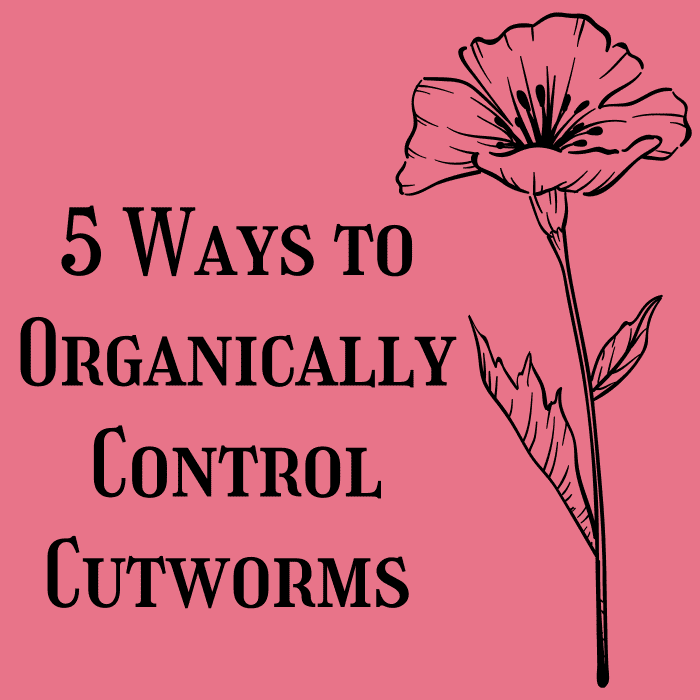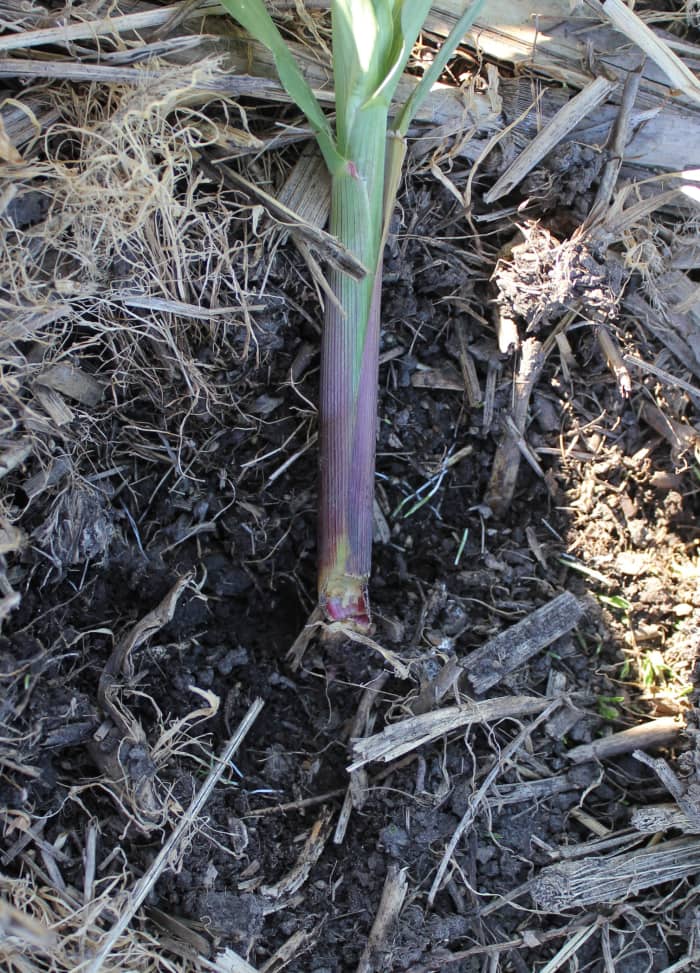Is It Safe To Garden With Whipworms
Updated date:
5 Ways to Control Cutworms in Your Garden Safely and Naturally
Lynn has been a professional organic farmer for the last 35 years and runs a 210-acre farm in Western Colorado with her husband.

Controlling cutworms in your garden can be easy with these five tried and true methods.
Are Cutworms Ruining Your Garden?
Have you ever gone out into your garden in the morning and found out that half your seedlings were just cut off and lying in the garden? You looked around, and you didn't see any paths that could indicate animals, and you think to yourself, what could have happened to these plants? Mysterious garden death needs serious detective work.
Several notorious garden pests come out at night and destroy your garden. You'll need to put on your detective hat and go after those pests and reclaim your garden. Cutworms can be one of the most frustrating bugs in the garden.
What Do Cutworms Do?
Cutworms live just under the soil surface and come out at night and feed on your plants. They cut your plants off of the soil level, and in the morning, you find dead plants and no bugs. I've also seen the cutworms eating the lettuce leaves. They come up in the night and start munching all the leaves.
What Is a Cutworm?
A cutworm is the larva stage of a moth. Their adult form is a brownish moth that's about one inch long. They are nocturnal, and we really struggled with this pest until we started going out at night with a flashlight. Then we were able to see them eating the plants.

Damage caused by a cutworm in a garden.
Rsbernard, CC BY-SA 4.0
Top 5 Ways to Organically Kill Cutworms
- Handpick the cutworms at night. One of the most effective ways to get rid of cutworms is to go out at night, about an hour after it gets really dark, and then pick them off the plants. I like to feed them to the chickens in the morning. I always put them in a container and make sure it has a lid and that it's tight. Otherwise, they crawl out, and they get away. If you don't have chickens to feed them to, you can just squish them.
- Use diatomaceous earth. Diatomaceous earth is ground-up, fossilized seashells. It works its way into the body of the cutworms and causes them to dehydrate and die. Be sure to sprinkle it around the stems of your plants and reapply if it gets wet because you need the worms to come out of the soil and crawl through the diatomaceous earth for it to be effective.
- Use BT. Bacillus thuringiensis, or BT, is a bacterial pathogen that is used for biological control of the larvae. It is widely used by organic growers. The cutworm needs to ingest the BT for it to work. The BT gives it a bellyache, and then it stops eating and dies. It is safe for plants, animals, and humans. Just follow the instructions on the package to determine how much you need to apply.
- Use Sluggo Plus. This is an organic-listed product that has iron phosphate and spinosad as the active ingredients. It is effective on cutworms. It comes in pellet form that can be sprinkled on the garden.
- Use Captain Jack's Deadbug Brew. We use Captain Jack's Deadbug Brew once a week when we start to see damage or find worms at night. Captain Jack's has a bacterial agent in it that affects the worms, their digestion, and they stop eating and die. We spray this on our plants once a week until we have our third hard frost because it takes a little bit of frost to stop the cycle of the cutworms.
Read More From Dengarden

Check your garden at night with a flashlight if you can't find what's eating your garden.
Photo by Ameen Fahmy, via Unsplash
Always Check Your Garden at Night
If you can't figure out what is eating your plants, go out at night with a flashlight and you can usually spot the culprit. Besides, the garden just looks super cool at night, and it's fun to explore with a flashlight.
With a little bit of detective work and some natural ingredients, you can have a pest-free garden. May your garden be easy, fun, productive, and always organic.
More About Organic Pest Control
- Organic Garden Pest Control: 4 Ways to Get Rid of Roly-Polies
Getting rid of pests in a garden can be difficult. Learn four organic ways to remove pillbugs (roly-polies) and sowbugs from your garden. - How to Get Rid of Aphids Safely and Naturally
From garlicky sprays to chrysanthemum-derived pesticides, these natural solutions will help get rid of the aphids in your garden (and a few other pests too!). - How to Get Rid of Cabbage Worms Safely and Naturally
Cabbage loopers can ruin your crops in a hurry. Luckily, there are several cheap and easy ways to get rid of them. - How to Get Rid of Earwigs Safely and Naturally
Getting rid of your earwig problem could be as simple as setting out some corrugated cardboard and making a DIY garlic-oil spray.
This content is accurate and true to the best of the author's knowledge and is not meant to substitute for formal and individualized advice from a qualified professional.
© 2021 Lynn Gillespie
Related Articles
Is It Safe To Garden With Whipworms
Source: https://dengarden.com/gardening/5-Ways-to-Control-Cutworms-in-Your-Garden-Safely-and-Naturally
Posted by: blunthaideatel.blogspot.com

0 Response to "Is It Safe To Garden With Whipworms"
Post a Comment